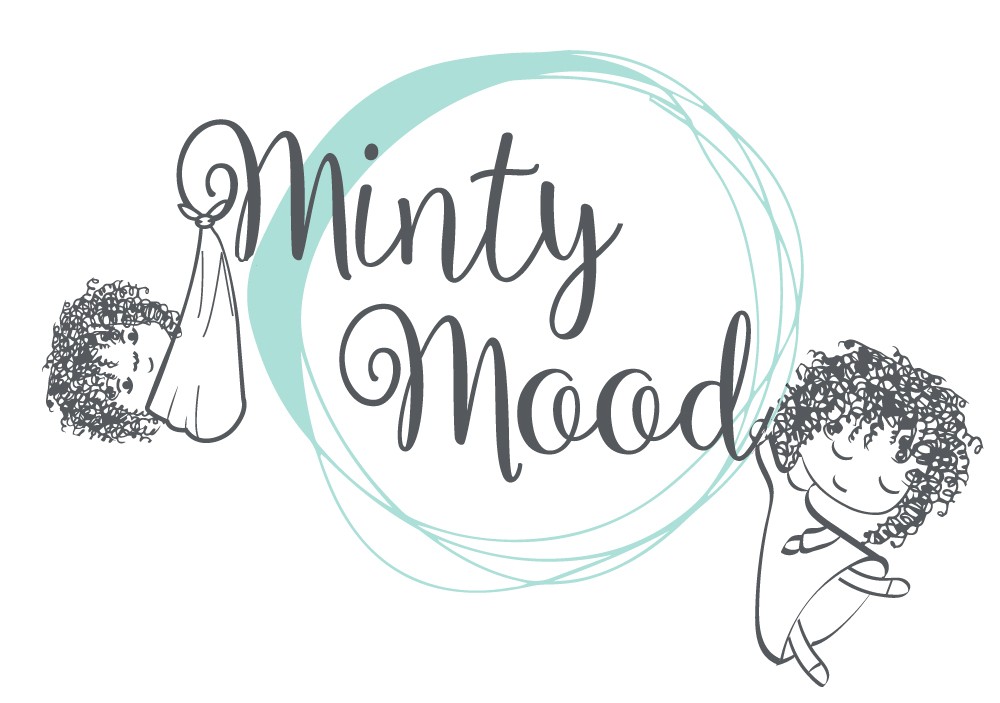
ABOUT THE AUTHOR:
Mirella Zygler, a midwife by vocation, lactation advisor, mother of three girls. Daily I work in the maternity unit at the Uster Hospital, where I try to surround patients and their children with the best possible care. I hope that through Minty Mood I will be able to reach and support other mothers in the most beautiful and the most difficult adventure of their lives.
-------------------------
Preparing for childbirth can be very stressful. So stressful that future parents, especially mothers, stop believing in their own strength. Fear and stress obscure all joy and keep you from enjoying the events ahead. And what if future parents can not only reduce anxiety, but also reduce the risk of birth complications?
Knowledge is a power!
Knowledge gives us a sense of security and makes us less nervous. Therefore, it is worth investing your time in reading, meeting with experts, as well as on a birth school course and… creating a birth plan. The birth plan is nothing more than your ideal imagination of the birth and what will happen in the first hours after the baby is born. It is worth writing down your expectations, doubts, and fears successively. The notes can be discussed on an ongoing basis with the doctor during check-up visits, with the midwife and during the birthing course.
The choice of the hospital in which we decide to give birth and the midwife, whose task will be to control and care for the mother and baby after returning home, may depend on our expectations and the birth plan.
How to create a birth plan?
Here are some sample questions:
In which positions would I like to give birth?
Do I need an epidural or natural pain relief?
Do I want to be active during childbirth?
Does the delivery room / delivery unit have such equipment as: a ladder, delivery chair, other aids for comfortable positioning?
Will I be able to stay active if I need to connect a CTG monitor and / or a drip? (will I be able to walk, use the ball, ladder, and other equipment)
Would I like to be able to enter the bath during childbirth? Would I like to give birth to my baby in water?
Would I like my partner to be present throughout and right after the delivery?
Does the hospital have a neonatal department so that I would not be separated from my baby if necessary?
If and how much do I care about breastfeeding and will I want to seek advice from a professional lactation consultant?
Does the hospital have a family ward so that the partner can be present during the entire stay with us?
Do I generally agree to shave intimate areas during childbirth?
Do I want to be kept informed about my condition and any medical procedures?
Is it possible to eat and drink during childbirth?
Is it possible to touch a baby head during childbirth?
Would I like to have a perineal incision / do I agree to an episiotomy if necessary / do I categorically disagree with a perineal incision?
Is it possible to be together with a partner in case of a cesarean section?
Is it possible to have a skin-to-skin with my baby while still in the operating room?
Is it possible to breastfeed in the operating room?
Can the accompanying person kangaroo the child until I will be able to do so?
Do I want the child to be dressed in hospitals’ clothes?
Would I like my partner to cut the umbilical cord?
Would I like to latch my baby to the breast while still in the delivery room?
Do I care about uninterrupted skin-to-skin contact after giving birth?
The questions and doubts can be endless and there is no one perfect birth plan. Everyone can create their own - but its form is important. It should be legible and transparent. The final birth plan should be concise and legible enough for the medical staff caring for the birthing child to be able to read it quickly, and to be sufficiently extensive to ensure a sense of comfort for parents, that their requests and expectations are clearly communicated. Usually, during antenatal visits or before admission, the medical staff conducts a thorough interview with the patient and records her expectations and preferences in medical records. The expectations written down in the previously prepared birth plan will certainly be included in the documentation and care plan for the mother in labor.
The choice of the hospital and the midwife versus our expectations
The birth plan itself can be a reason to visit the hospital and talk to medical staff about whether our expectations are realistic in that place. For this purpose, it is best to read the information on the website of the facility or call and ask for a consultation with the midwife. It is important to familiarize yourself with the local procedures, customs, and possibilities. For example, not all hospitals offer natural methods of pain relief or offer professional lactation counseling. If we care about these things, we should look for a hospital with appropriate back-up facilities.
Paradoxically, a developed vision of a perfect birth has little chance of being realized. It is such a dynamic event, dependent on many external factors that it is almost certain that its course will differ from what the parents imagined. However, the preparation itself gives future parents a sense of security. Statistics show that the very process of developing a birth plan, collecting information, consulting it with a doctor or midwife has a positive effect on reducing antenatal stress and, in turn, translates into a more efficient delivery, a lower rate of complications and greater satisfaction with the care in the hospital itself.





Leave a Reply Cancel Reply